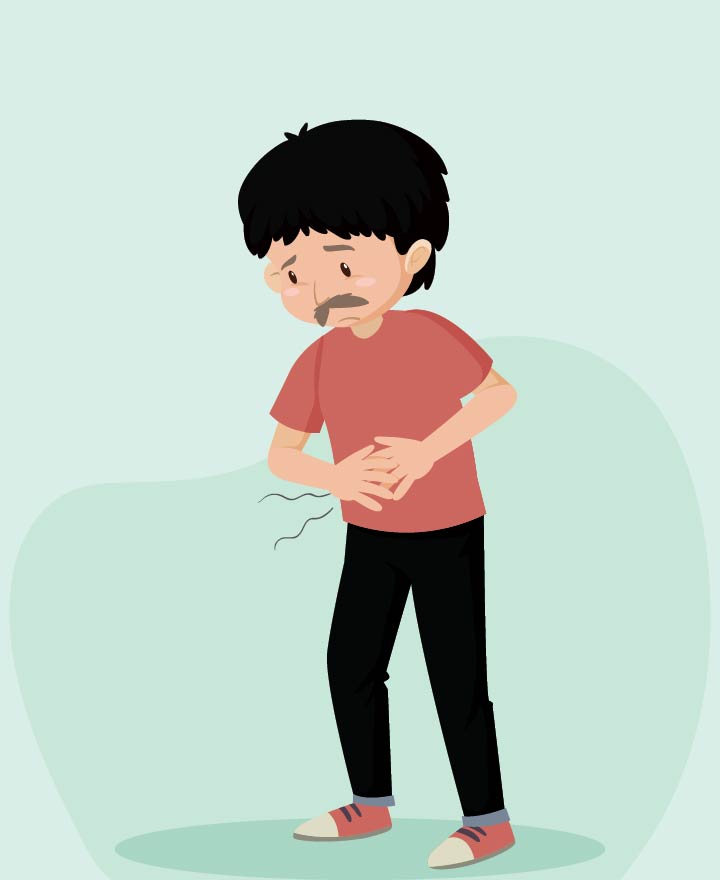

What is Guillain-Barre Syndrome?
Guillain-Barre Syndrome (GBS) is a rare autoimmune condition that causes muscle weakness and sudden numbness in most parts of the body, leading to paralysis. This syndrome disturbs the normal functioning of your immune system, causing the immune cells to mistakenly attack and destroy the peripheral nerves of your body.
GBS usually affects people between 30 and 50, but this may not be true in all cases identified. Though it affects only 1 in about 78,000 people, it is important to watch out for the symptoms and get proper treatment on time.
When the symptoms are diagnosed on time and treated properly, most people recover fully from this syndrome. According to studies, with the right therapies, most patients can walk and climb stairs normally within six months of experiencing the first symptoms of this syndrome. In a few cases, the recovery process may be slow, and people may take several years to get back to their routine life.
Causes of Guillain-Barre Syndrome
While doctors don’t know the exact causes of Guillain-Barre Syndrome, they have zeroed in on the following possibilities based on the patterns they observed in patients.
1. Certain infections
Nearly 70% of the people diagnosed with this syndrome had an illness 1 to 6 weeks before the first symptoms. Infections from an ailment are usually the most common triggers for the Guillain-Barre Syndrome. However, it is still not known why only some people may develop this syndrome after sickness, and some do not.
Based on the different cases analysed, doctors have identified the following infections as common triggers for GBS.
• Campylobacter infections (bacteria found in improperly cooked poultry and dairy products)
• Viral infections (Influenza, Zika, Hepatitis A, B, C & E, cytomegalovirus, Epstein-Barr virus, COVID-19 and HIV)
• Severe respiratory ailments (mycoplasma pneumonia)
2. Abnormal functioning of the immune system
One of the first symptoms of GBS is the abnormal functioning of the immune system. However, not all immune system dysfunctionalities lead to GBS.
The immune system, which functions improperly, starts attacking the peripheral nerves of your body. Repeated nerve damage causes the erosion of your nerves' insulation (protective covering, known as myelin sheath in medical terms), thereby leading to muscle weakness, tingling sensation, and numbness.
3. Other less common reasons for the Guillain-Barre Syndrome may include
• Trauma
• Certain surgeries
• Certain Vaccinations, in rare cases (usually vaccinations given to children and influenza vaccinations)
• Hodgkin lymphoma
Treatment of Guillain-Barre Syndrome
Your doctor may ask you to get electromyography, nerve conduction test, spinal tap, and imaging tests to rule out other neurological problems and confirm your condition as GBS. Currently, there is no known cure for this syndrome, but if the symptoms are identified early, you can recover well, as these can be managed better than before.
The treatment of Guillain-Barre Syndrome takes time, so you should be prepared for an extended stay in the hospital. Many people recover from all the symptoms within six weeks of receiving therapies.
Doctors may choose one of the following treatment methods if you are diagnosed with GBS:
1. Plasmapheresis
This treatment is also known as the plasma exchange method. Here, the doctor separates the plasma from your blood, removes the antibodies that damage your peripheral nerves, cleans the plasma, and returns it with the blood to your body.
2. Intravenous Immunoglobin Therapy (IVIG)
In this treatment, immunoglobins are injected intravenously into your body. These antibodies are natural proteins that prevent your immune system from attacking the peripheral nerves. Doctors inject you with immunoglobins provided by healthy donors.
What is the best treatment for Guillain-Barre Syndrome from these two? We cannot answer this for you because both therapies lessen the impact of GBS and reduce your recovery time. Your doctor may assess your condition and choose the best treatment that suits you.
Apart from these, doctors may also give you a few medications to stop blood clots and relieve the pain. To help you recover well, your physician may advise you to go for physical therapies, occupational therapies, speech therapies, and mobility aids after your GBS treatment.
Conclusion
GBS is a rare autoimmune syndrome that can lead to paralysis and other health complications if the symptoms are not treated on time. While you cannot prevent this syndrome, you can get yourself treated to recover quickly and improve your quality of life. GBS treatment can be quite costly. Look for proper health insurance online, and check the inclusions properly to ensure coverage for your treatment.
One of the important components of our overall wellness is also being financially secured. Healthcare emergencies can happen any time, but a good health insurance policy can protect you from such uncertain situations. To know more about Wellness and other health related tips, visit the wellness corner.
Source: my.clevelandclinic, mayoclinic
Disclaimer: This blog provides general information and discussions about health and related subjects. The information and other content provided in this blog, website or any linked materials are not intended and should not be considered or used as a substitute for medical advice, diagnosis, or treatment. Kindly contact your doctor before starting a new medicine or health regime.
Related Articles
Muscle Atrophy - Causes, Symptoms, and Diagnosis
Sarcopenia - Causes, Treatment, And How to Prevent
10 Signs Of A Weak Immune System
Muscular Dystrophy - Causes, Symptoms, and Treatment
Muscle Fatigue - Causes, Symptoms, and Treatment
Published on February 04, 2025
























 Health Insurance
Health Insurance  Travel Insurance
Travel Insurance  Car Insurance
Car Insurance  Cyber Insurance
Cyber Insurance  Critical Illness Insurance
Critical Illness Insurance
 Pet Insurance
Pet Insurance
 Bike/Two Wheeler Insurance
Bike/Two Wheeler Insurance  Home Insurance
Home Insurance  Third Party Vehicle Ins.
Third Party Vehicle Ins.  Tractor Insurance
Tractor Insurance  Goods Carrying Vehicle Ins.
Goods Carrying Vehicle Ins.  Passenger Carrying Vehicle Ins.
Passenger Carrying Vehicle Ins.  Compulsory Personal Accident Insurance
Compulsory Personal Accident Insurance  Travel Insurance
Travel Insurance  Rural
Rural